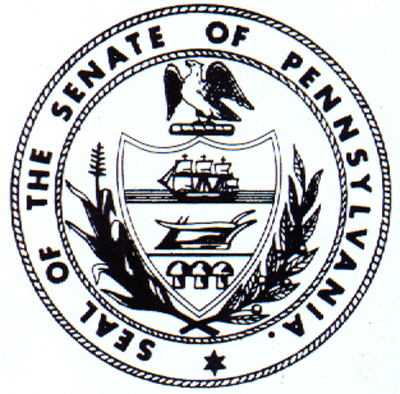|
|
|||||||
FUMO WANTS EMPLOYERS TO DISCLOSE E-MAIL MONITORING PHILADELPHIA, May 24, 2001 - Employees would be entitled to know if their employers are monitoring e-mail, under legislation that will be introduced by state Senator Vincent J. Fumo (D-Philadelphia.)Businesses would maintain the right to examine electronic messages sent on their computer equipment, but they would have to notify employees in writing that they are doing so, or that they might do so in the future. Without such notification, employees would have the legal right to presume that their messages are private. "This legislation attempts to balance the rights of the business owner and the rights of the individual employee," Fumo said. "Employers have the right to make sure that their computers are being used for appropriate purposes, but employees also deserve to know whether or not their correspondence is private." According to a recent study by the American Management Association, nearly 80 percent of all major corporations routinely monitor employee use of e-mail, an increase from 35 percent in 1997. Also, two recent federal court decisions in Pennsylvania cases have determined that under state law, employees currently do not have a legally recognized expectation of privacy in communicating by e-mail. In one case (Smyth vs. Pillsbury Co.), the employer had explicitly informed employees that e-mail communication would be confidential and would not be used as grounds for reprimand or termination, but fired a worker after monitoring his e-mail. Courts ruled that despite the assurances of the business, the employee did not have a reasonable expectation of privacy. "With people spending more time at the workplace, they are using e-mail more frequently to manage their lives," Fumo said. "Workplace e-mail communication, like the telephone, has become a socially acceptable form of communicating private and personal information." He noted that under state law, employers do not have the right to listen in on employee phone calls, even though the employer owns the telephone. Fumo drafted the legislation in consultation with United Messaging, a Philadelphia-area e-mail outsourcing firm that provides messaging services to businesses. The firm's general counsel, Ken Segarnick, has testified before the United States Congress on e-mail monitoring. "When you consider the ubiquity of e-mail, this is a measure that is very much needed," said Segarnick. "E-mail has become the primary tool for business communication and it's high time we set down some basic parameters. This bill does that." He noted that Pennsylvania would be among the first states to deal with the issue of workplace e-mail privacy. Fumo intends to introduce the bill in the state Senate within several weeks. The legislation includes a sample notification that employers can use to tell their workers that their e-mail is subject to monitoring.
(Name of Company) (Address of Company) (Telephone Number of Company)
This notice is to inform you of (name of company)'s (hereinafter the "company") intention to inspect, review or retain electronic communications created, sent, displayed, received or stored on or over its information technology, network, Internet access, computer equipment, data bases, files and software (collectively the "computer system"). Company may monitor at any time, without further notice to you, electronic communications created, sent, displayed, received or stored on or over its computer system, whether related to the company's business or not. EMPLOYEES SHOULD NOT HAVE AN EXPECTATION OF PRIVACY IN ANYTHING THEY CREATE, STORE, SEND, RECEIVE OR DISPLAY ON OR OVER THE COMPANY'S COMPUTER SYSTEM. The company may use human or automated means to monitor the contents or use of its computer system. Employee Acknowledgment: I the foregoing notice regarding monitoring electronic communications. Employee's signature: ________________
A business could monitor e-mail without notice if it had reason to believe that an employee was engaged in illegal activity or behavior that could result in harm to the employer or another person, if the monitoring is calculated to lead to evidence of such conduct. An employee whose e-mail has been monitored in violation of the law would be entitled to file a civil action. #
| |


